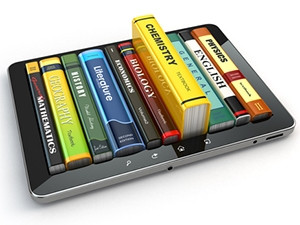
Successful digital learning comes from a strong combination of technology, pedagogy and content knowledge.
So said Michael Goodman, group content manager at Via Afrika educational publishers and content developers, at SABC Education's African EduWeek in Midrand yesterday.
Whereas technology refers to connectivity and devices such as tablets and interactive white boards, pedagogy refers to digital teaching methods, and content knowledge concerns access to resources that harness new learning methods offered by the digital classroom.
Even with the right devices and accompanying resources, learners still need good teachers, said Goodman.
A digital learning solution without innovative resources is similarly ineffective, he continued. Simply turning a textbook into a pdf only serves to make learners' schoolbags lighter and much more expensive, he quipped.
Hazel Bonaretti, educator at Springs Boys High School on the East Rand, agreed that "paper behind glass" textbooks, or hard-copy textbooks delivered as pdfs, deliver little to learners except a different reading medium.
In any case, a teacher can never expect quality results from just one textbook, "because there are shortfalls in every textbook," said Jason Fisher, educator at Randfontein High School, lauding the benefits of supplementing written content with multimedia resources.
Fisher, who is Randfontein High School's HOD for English, said he often tasks his learners with video essays, on which they can base their written essays. Allowing learners to express themselves through a wider variety of mediums has "opened their paradigms", stimulating creativity and understanding, Fisher explained. Consequentially, the quality of their assessment and exam results has improved greatly, he said.
Notwithstanding what multimedia content can bring to the classroom, teachers must not be allowed to abuse technology by simply playing video lessons or resources in their classrooms without crafting proper lesson plans, said Bonaretti.
Plagiarism is another challenge posed by digital learning, Bonaretti added. When learners type their work and do much of their research online, it is easier for them to simply copy and paste in whole paragraphs of information, she explained. This "trebles the workload" for the teachers marking their assignments, as they have to search extensively for signs of plagiarism, she said.
Another challenge posed by typed work is that learners must still be able to handwrite essays in their matric exams, said Bonaretti. Currently, learners caught in the transition to digital learning have to master both handwritten and digital output, which can be taxing, because these can be conflicting processes, even using different neurological pathways, Bonaretti noted.
"The terminology of the 'paperless' classroom is interesting," because there is still so much paper used in classrooms, and most notably in matric examinations, Bonaretti observed. "We need to ask 'what does paperless mean?' when the government promises it."
Share